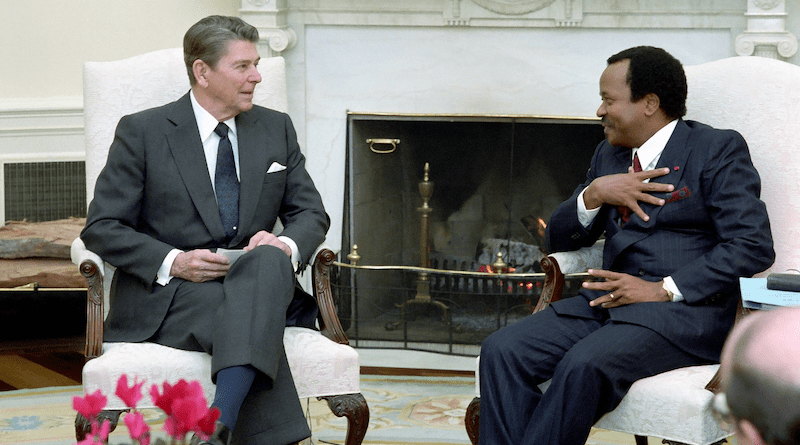Africa Confronts An Aged Leadership Unwilling To Retire – OpEd
By IDN
By Lisa Vives
African leaders serving 20 or more years in office are drawing the attention of critics who question their ability to run a country after so many years.
Suspicions about the stability of Cameroonian President Paul Biya, age 89, were raised in a recent issue of Ghana Business News. According to some observers, Biya, seen in a video at the US-Africa Leadership Summit in Washington DC, appeared listless, absent-minded, confused and unaware of his environment.
“He kept asking his aides where he was, some observers said, and who was in the room, and when they told him and gave him his speech, he was flipping the papers and was asking more questions suggesting that he had no idea where he was nor what he was doing there.”
Biya has been Head of State for more than 40 years and was a resident of Switzerland longer than he lived in Cameroon. Some now question Biya’s mental and physical state.
The case of Cameroon isn’t different from many African countries. In Zimbabwe, the late Robert Mugabe served as President until a very advanced age. When Mugabe died in 2019, he was 95 years old. He had ruled Zimbabwe for 37 years and was ousted by his own henchmen in 2017 when he was 93 years old.
In Gabon, 63-year-old Ali Bongo Ondima, the third and current president since October 2009, survived a coup d’etat in 2019. Among the stated reasons for the coup was an attempt to “restore democracy” following the 2016 election, which Mr Bongo narrowly won amid accusations of fraud and acts of violence. He has hinted he would run again for re-election this year.
Other ageing leaders include South Sudan President Salva Kirr, who appeared on the Internet wetting himself in public while performing a public duty. Kirr is 71 years old.
Teodoro Mbasogo of Equatorial Guinea, at 80 years old, has been in charge of his country for 43 years, making him the longest serving Head of State in the world.
Nana Akufo-Addo of Ghana is 78 years old, and by the time he ends his second term in office, he would be almost 80 years old.
Others are the President of Cote d’Ivoire, 81-year-old Alassane Ouattara, who changed his country’s constitution and extended his tenure in office at the expense of the lives of some of his citizens; Nigeria’s Mohammadu Buhari, 80. As he nears the end of his tenure as president, two of the contenders to the office are in their 70s. Bola Tinubu is 70 years old and Abubakar Atiku is 76.
Algerian President Abdelmadjid Tebboune is 77 years old. He became president after the death of Abdelaziz Bouteflika. Bouteflika died in 2021 at the age of 84 after running Algeria for 40 years.
At the age of 78, Yoweri Museveni of Uganda has been in office for 38 years and still counting. Similarly, U.S. President Joe Biden is 80 years old and planning to seek another 4-year term.
“The age of the men running countries in Africa paints a gloomy picture of the continent where the youth make up more than 60 per cent of the population and are projected to reach more than 850 million by 2050”, said Emmanuel K. Dogbevi in a recent edition of NewsBridge Africa.
“It is high time Africans put in the spotlight the subject of the age of people they hand the running of their countries to.”


There is need for country leaders to have an annual medical check-up, and make it public.Age is not a problem, but a two term mandat is the right thing to do.
Abdelaziz Bouteflika didn’t govern the Algeria for 40 years. He was Algeria president (1999- 2019). Just a correction. Thanks for the article.